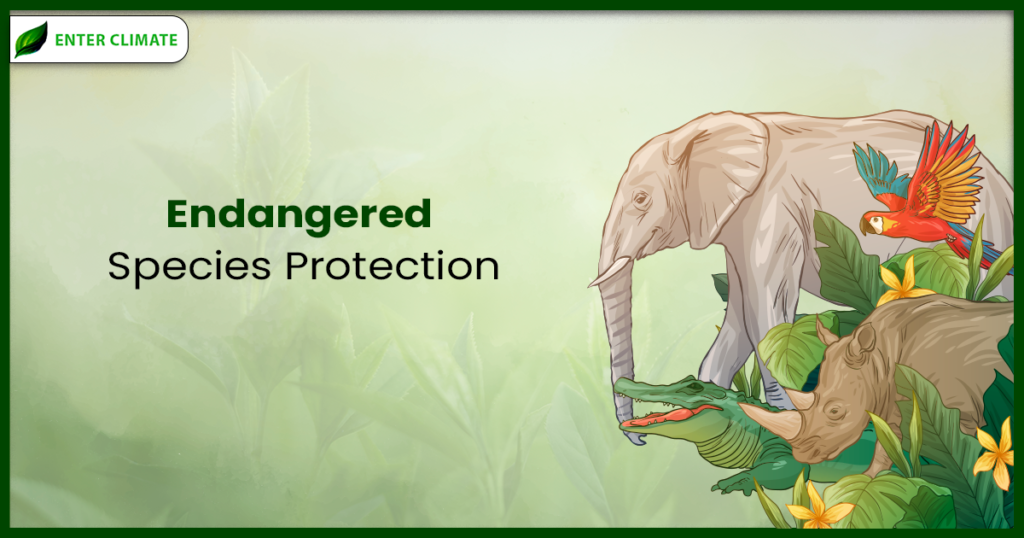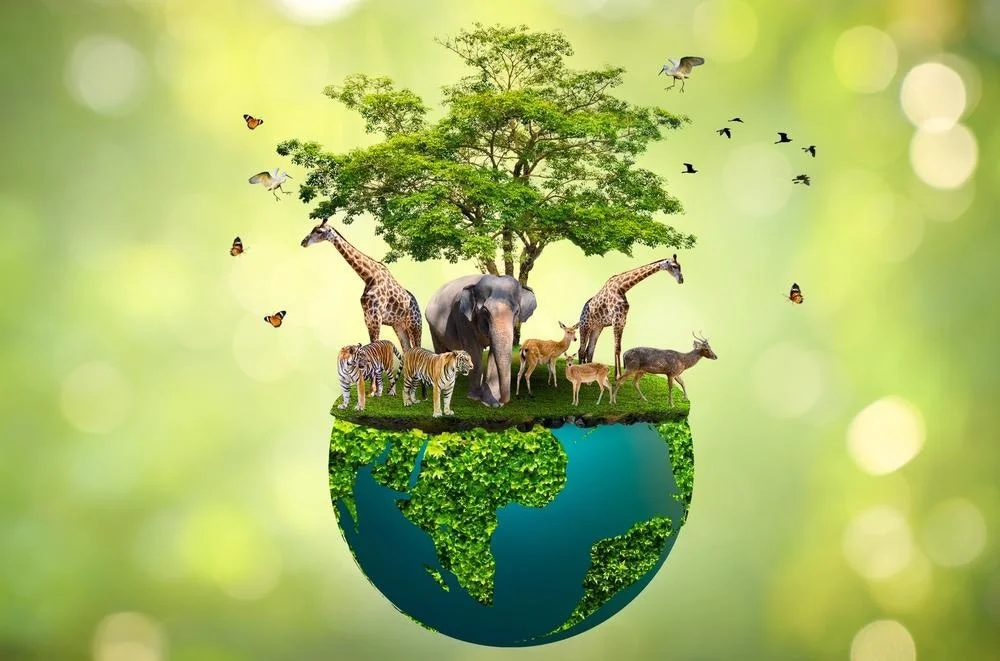The Role of National Parks in Wildlife Conservation
Introduction:
National parks are not just scenic landscapes for recreational activities; they play a critical role in preserving biodiversity and safeguarding the habitats of numerous species. Covering vast expanses of land and often representing a country’s natural heritage, national parks serve as protected areas where wildlife can thrive undisturbed by human activities. This article explores the multifaceted role of national parks in wildlife conservation, highlighting their importance in preserving ecosystems, supporting endangered species, and promoting environmental education and awareness.
Preservation of Natural Habitats:
One of the primary functions of national parks is to conserve and protect natural habitats, including forests, grasslands, wetlands, and marine ecosystems. By designating large tracts of land as protected areas, national parks provide refuge for a diverse array of plant and animal species. These habitats serve as havens where wildlife can find food, water, shelter, and breeding grounds essential for their survival. Moreover, by preserving intact ecosystems, national parks help maintain ecological balance and resilience against environmental threats such as habitat loss, fragmentation, and climate change.

Supporting Endangered Species:
National parks often harbor populations of endangered and threatened species that are at risk of extinction due to human activities such as habitat destruction, poaching, and pollution. By offering sanctuary from these threats, national parks play a crucial role in safeguarding the survival of these vulnerable species. Conservation efforts within national parks may include habitat restoration projects, captive breeding programs, and anti-poaching patrols aimed at protecting endangered wildlife. For example, national parks in Africa serve as key strongholds for iconic species such as elephants, rhinoceroses, and lions, whose populations are under pressure from illegal wildlife trade and habitat loss.

Ecosystem Services and Functions:
In addition to preserving wildlife habitats, national parks provide essential ecosystem services that benefit both wildlife and human communities. Healthy ecosystems within national parks regulate climate, purify air and water, control erosion, and support pollination and seed dispersal. These ecosystem services are vital for maintaining the ecological balance and sustaining biodiversity within and beyond the boundaries of national parks. Moreover, by protecting watersheds, national parks ensure a clean and reliable water supply for wildlife, local communities, and downstream users.
Promoting Environmental Education and Awareness:
National parks serve as outdoor classrooms where visitors can learn about ecology, conservation, and the importance of preserving natural resources. Interpretive programs, guided tours, visitor centers, and educational exhibits provide opportunities for people of all ages to connect with nature and gain a deeper understanding of wildlife and ecosystems. Through hands-on experiences such as hiking, wildlife watching, and volunteer activities, visitors develop a sense of stewardship and appreciation for the natural world. Furthermore, national parks serve as living laboratories for scientific research, contributing valuable data and insights into biodiversity conservation and ecosystem management.

Challenges and Conservation Efforts:
Despite their significance, national parks face numerous challenges, including habitat degradation, invasive species, climate change, and human-wildlife conflicts. Encroachment from surrounding development, illegal logging, poaching, and unsustainable tourism can threaten the integrity of protected areas and undermine conservation efforts. To address these challenges, national park authorities, conservation organizations, and local communities collaborate on initiatives such as habitat restoration, wildlife monitoring, law enforcement, and sustainable tourism practices. Engaging stakeholders in participatory management and promoting community-based conservation approaches are essential for ensuring the long-term success of national park conservation efforts.
Conclusion:
National parks are invaluable sanctuaries for wildlife and vital repositories of biodiversity, representing the collective efforts of societies to protect and preserve natural heritage for future generations. By conserving natural habitats, supporting endangered species, providing ecosystem services, and promoting environmental education, national parks play a pivotal role in wildlife conservation and sustainable development. However, addressing the complex challenges facing national parks requires ongoing commitment, collaboration, and innovative solutions to ensure the continued protection of our planet’s precious natural treasures.

20 thoughts on “The Role of National Parks in Wildlife Conservation”
Write more, thats all I have to say. Literally, it seems as though you relied on the video to make your point. You obviously know what youre talking about, why waste your intelligence on just posting videos to your blog when you could be giving us something informative to read?
I am impressed with this site, rattling I am a fan.
Hey! I just want to give an enormous thumbs up for the great data you could have here on this post. I will probably be coming again to your weblog for extra soon.
I believe you have mentioned some very interesting points, thankyou for the post.
Glad I detected this on google .
My spouse and i got quite glad Emmanuel could carry out his analysis via the precious recommendations he discovered using your web site. It is now and again perplexing to simply be making a gift of hints that a number of people have been trying to sell. Therefore we already know we’ve got the website owner to thank for this. All the illustrations you made, the straightforward website navigation, the friendships your site help instill – it’s got many fantastic, and it is leading our son in addition to our family know that that idea is pleasurable, and that’s rather pressing. Thanks for everything!
It’s really a cool and useful piece of info. I am satisfied that you just shared this useful info with us. Please stay us up to date like this. Thanks for sharing.
great points altogether, you just gained a brand new reader. What would you recommend about your post that you made a few days ago? Any positive?
Well I really liked reading it. This post provided by you is very effective for accurate planning.
Just wanna say that this is very helpful, Thanks for taking your time to write this.
I definitely wanted to send a small remark so as to appreciate you for these pleasant instructions you are writing on this site. My incredibly long internet research has at the end been recognized with high-quality facts and strategies to write about with my relatives. I would assume that we visitors are very much endowed to live in a great community with so many perfect individuals with helpful plans. I feel really happy to have come across your site and look forward to many more pleasurable times reading here. Thanks once again for a lot of things.
I am thankful that I noticed this web site, exactly the right info that I was searching for! .
Thank you for being an amazing reader. Your support truly motivates us to do better.
Your generous contributions have enabled us to achieve so much—thank you for being part of our story.
Hello.This post was really motivating, especially because I was investigating for thoughts on this issue last Saturday.
Write more, thats all I have to say. Literally, it seems as though you relied on the video to make your point. You obviously know what youre talking about, why throw away your intelligence on just posting videos to your blog when you could be giving us something informative to read?
Its such as you learn my mind! You appear to grasp so much approximately this, such as you wrote the guide in it or something. I believe that you simply can do with some to drive the message home a little bit, but instead of that, that is excellent blog. A great read. I’ll definitely be back.
May I have information on the topic of your article?
I have learn some good stuff here. Certainly value bookmarking for revisiting. I surprise how much attempt you set to make the sort of wonderful informative website.
Sweet blog! I found it while searching on Yahoo News. Do you have any tips on how to get listed in Yahoo News? I’ve been trying for a while but I never seem to get there! Thank you